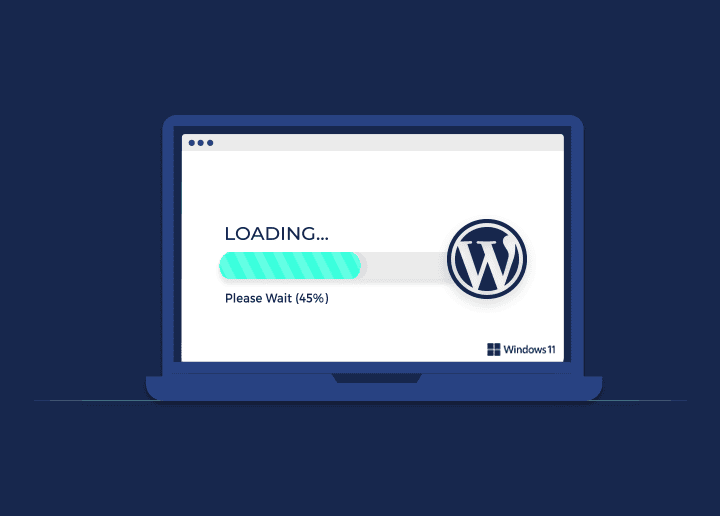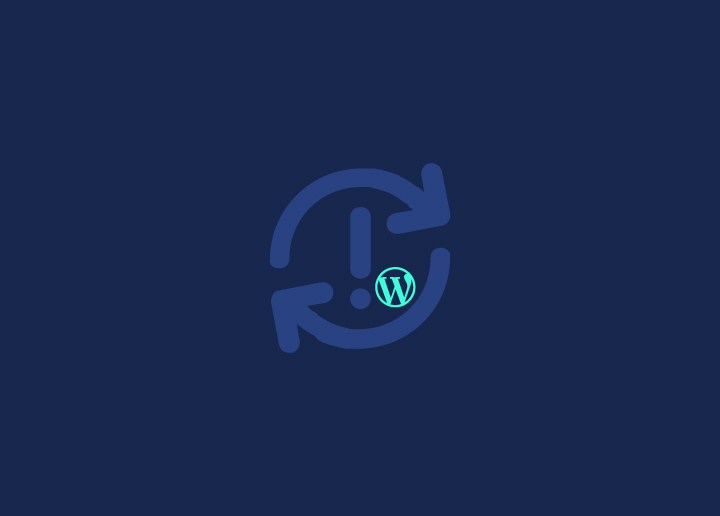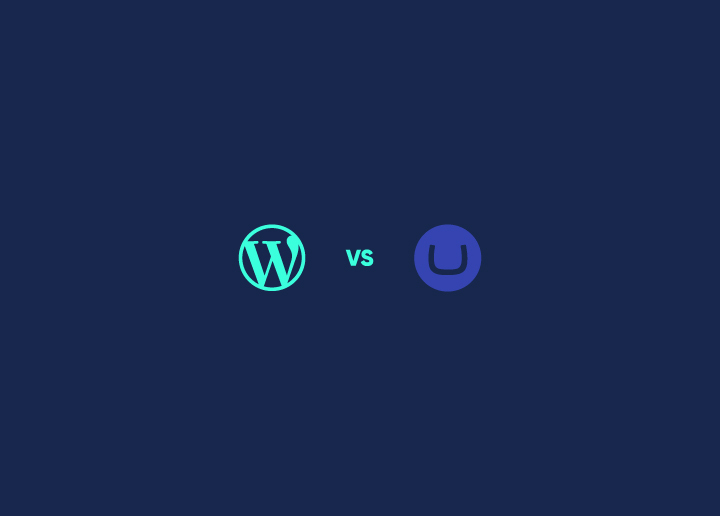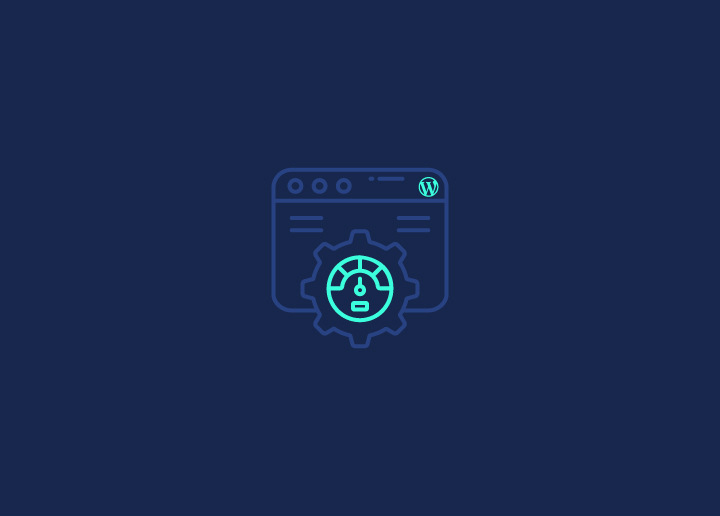Have you ever dropped out of a site after it takes too long to load? We bet that happened quite a few times. Users will always have high expectations when it comes to website loading speed. Even the slightest delay can disappoint and annoy the users and lead to higher bounce rates.
As a part of the web space, we all understand the crucial need to maintain a WordPress website speed. Speed is one of the most important factors that cannot be overlooked in your site performance.
This is why website speed testing has become an important task to take over, ensuring your site is always up and running and speed optimisation.
Today, many tools are available to test WordPress performance and load time. With these tools, you can easily fetch the pain points in your website’s speed, enhance its performance, and test its overall speed and performance.
Let us go ahead and learn about the growing significance of site speed and the seven best free tools to test your WordPress performance and site speed:
Contents
ToggleThe Significance of WordPress Page Speed
Picture this: a user lands on your website, eager to explore your content or products. However, your site takes more than 2-3 seconds to load, impatience sets in, and the user leaves the site. Users, accustomed to immediate access to information, are quick to abandon a site that fails to meet their expectations with speed.
As website owners, we must comprehend the significance of site speed index and load times in today’s digitally advanced web space. You can only create an exceptional user experience if your site speed is above average and loads quickly.
Understanding the dynamics of user behaviour is crucial. Studies consistently show that users expect a seamless and rapid browsing experience. A delay in page loading can result in frustration, negatively impacting the overall perception of your brand or content. It’s not just about losing a visitor; it’s about losing an opportunity to engage, convert, or retain a valuable audience.
Thus, it is essential to regularly monitor and keep up with your WordPress performance and page speed.
Do not miss: 15+ Tips To Speed Up WordPress Site Performance
Top 8 Tools To Test WordPress Site Speed
Below are the seven best free tools to test your WordPress performance and site speed:
Seahawk Website Speed Test
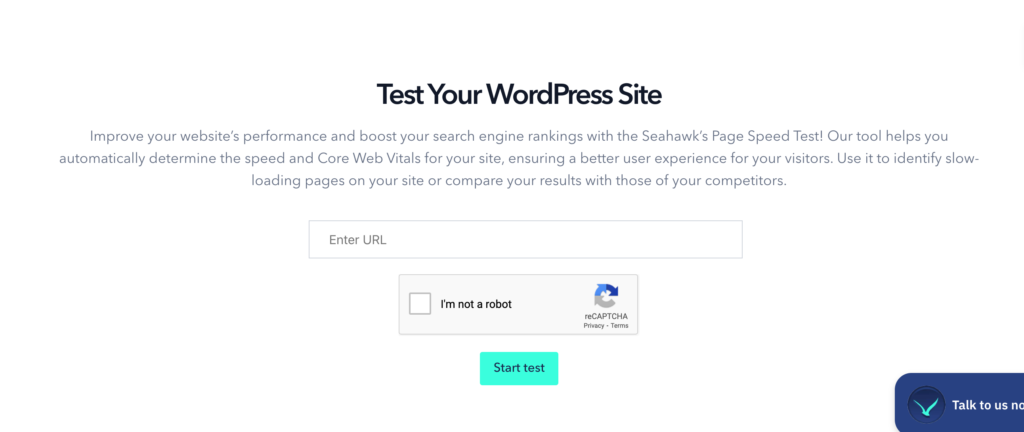
The Seahawk website speed test tool is an ideal fit if you are looking for a free website speed test. This tool is more than just a basic site speed checker; it gives you an in-depth analysis of your website’s health and functionality.
With Seahawk’s tool, you can constantly check your website downtime and ensure optimal performance at all times. These advanced monitoring tools allow you to enhance website functionality, accelerate load speed and oversee real-time traffic. It also acts as a watchdog for your site, locating any broken links that might invade navigation and checking for any potential malware threats.
To use the tool, just input your website’s URL, and it will provide you with a quick insight into your site’s performance. Seahawk’s Free Website Speed Test Tool offers an all-inclusive solution for those seeking to maintain their site speed and overall performance.
GTMetrix

If you are a beginner and want a user-friendly tool, to begin with your site speed testing, then GTMetrix is the right choice for you. It is a great tool that offers in-depth insights into your WordPress performance and speed. Just start by putting in your site’s URL and clicking on Analyze.
GTMetrix analyzes the site speed with Goggle’s PageSpeed and Yahoo’s YSlow metrics and generates a complete analysis report of your website’s speed and performance.
Additionally, you can get recommendations regarding browser caching, optimizing images, and minimizing the CSS and JavaScript files. The tools also specifically focus on Google Core web vitals metrics to offer major test data. With this, you can see your website’s LCP (Largest Contentful Paint Time ) and various other metrics.
Google PageSpeed Insights
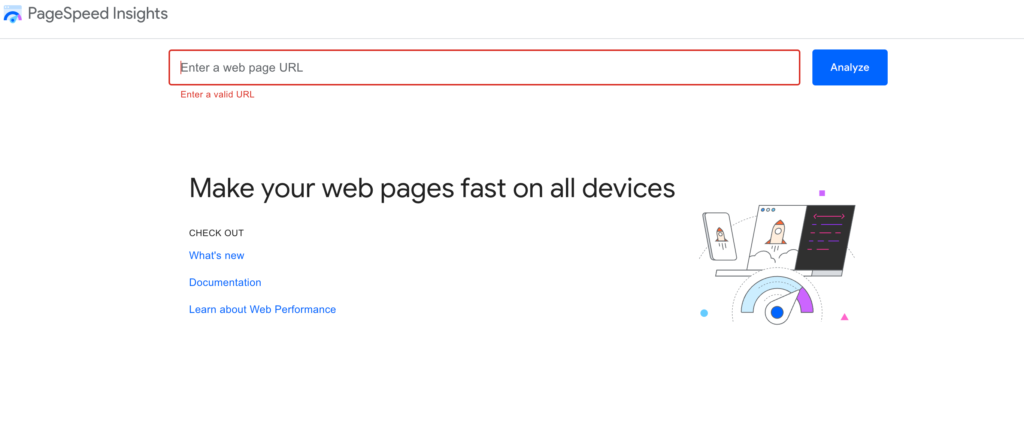
Google PageSpeed Insights is WordPress’s most popular and widely used speed test tool. It offers significant insights into your website’s performance on both desktop and mobile with actual page load times for various valuable metrics.
This tool uses a method of scoring that ranges from 0-100, showing the optimization level of your website and other vital areas that display your site’s user engagement.
It also offers a detailed analysis of all the suggestions regarding Javascript and CSS file optimization, image compression, and other catching improvements.
Pingdom
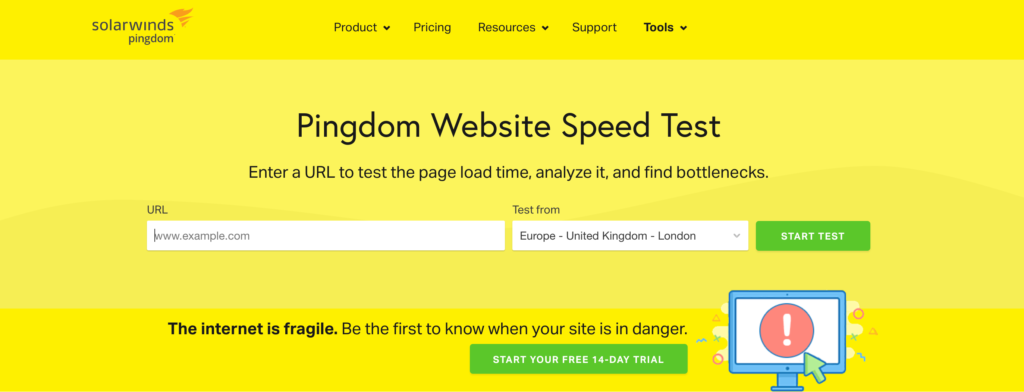
Pingdom is a renowned WordPress speed-testing tool that offers comprehensive website monitoring. This tool comes with many good features designed to monitor and analyze the performance and uptime of your website.
It helps you with real-time, actionable insights into your site’s uptime and performance to keep your users coming back repeatedly. One of its great features is that it constantly checks your site’s availability and response times and creates an alert in case of any unfortunate downtime.
Pingdom is one of the most user-friendly and strong speed testing tools and has become a go-to choice for many website owners in the growing web space.
WebPageTest
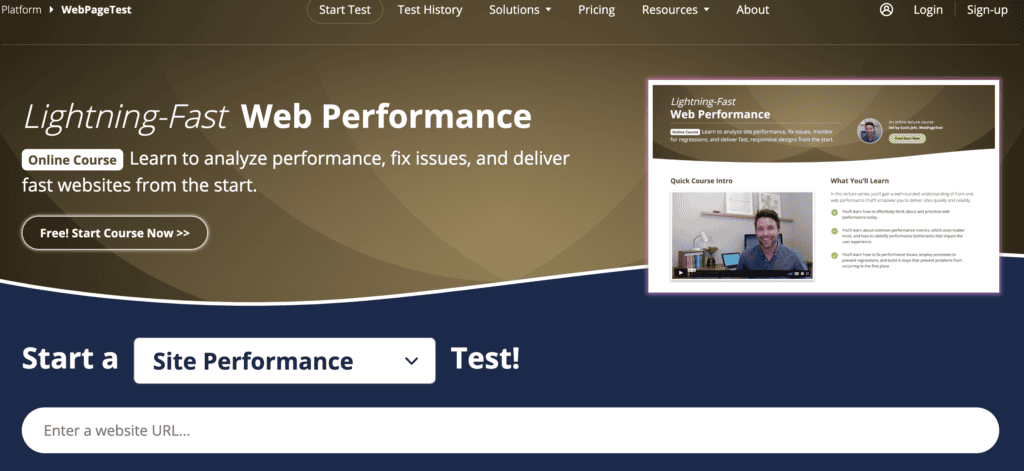
With in-depth data and comprehensive functionality tools, WebPage Test is among the most advanced WordPress speed test tools. It offers detailed reports based on various factors, including load times, first-time byte, etc.
You can also test your site speed for locations across the world to gain valuable insights into its performance based on geographic differences. One great feature of this tool is that it allows you to run up to nine tests simultaneously and help you determine the median value. This eliminates single-test variability.
Moreover, you can use its advanced settings to produce different network conditions, connection speeds, browser types and more. WebPage offers you an integrated view of your site’s performance.
UpTrends
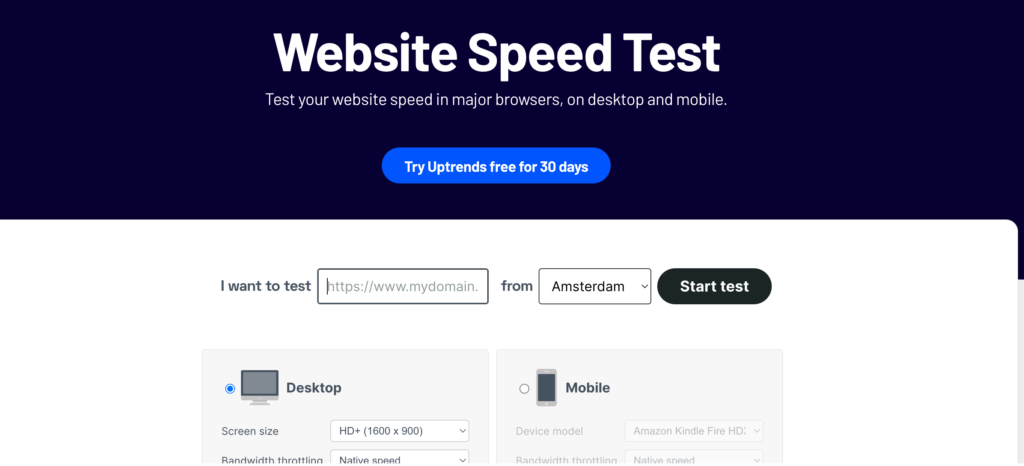
Looking for an easy-to-understand and easy-to-use tool? UpTrends is a simple yet effective speed test tool that evaluates your WordPress performance. You can examine and monitor your uptime and your site’s performance from multiple locations.
Similar to the GooglePage speed tool, it allows you to check your website speed for mobile and desktop devices and the bandwidth. It generates comprehensive reports on performance metrics like connection time, DNS lookup time and total page load time.
Read: Difference Between A Mobile Site And A Responsive Site
Additionally, it sets performance boundaries and alerts when your site speed is falling short of the set level. This helps you quickly resolve any unforeseen issues and maintain optimal website performance.
Sucuri Load Time Tester
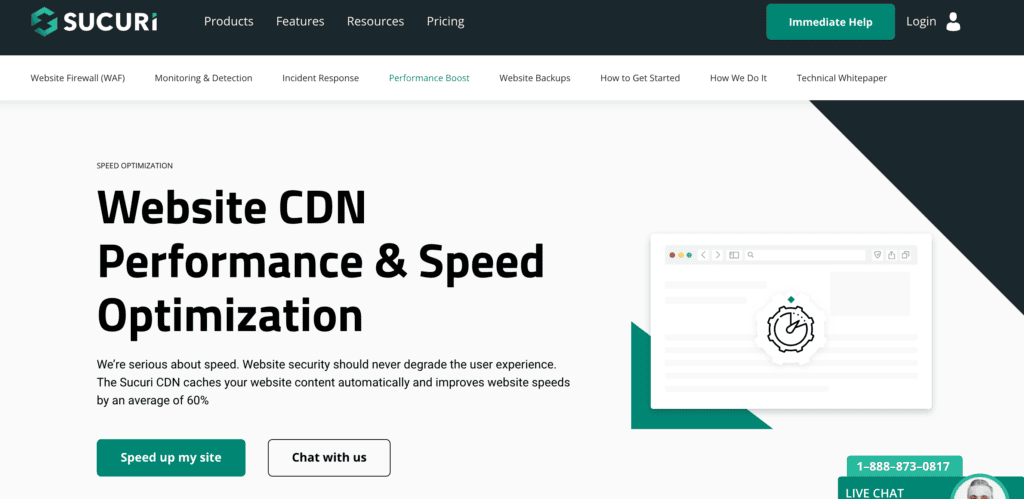
This tool is primarily focused on security and performance that helps you navigate your site’s load time and helps you identify constrictions circling within. It also determines connections from various locations and displays the time for the first byte.
The Sucuri load time tester also suggests performance optimizations for minimizing HTTP requests, compressing files and leveraging browser caching. Overall, it provides a holistic and in-depth view of the site’s speed and security for optimal WordPress performance.
Related: How HTTP Caching Works And How To Use It?
Upitimia
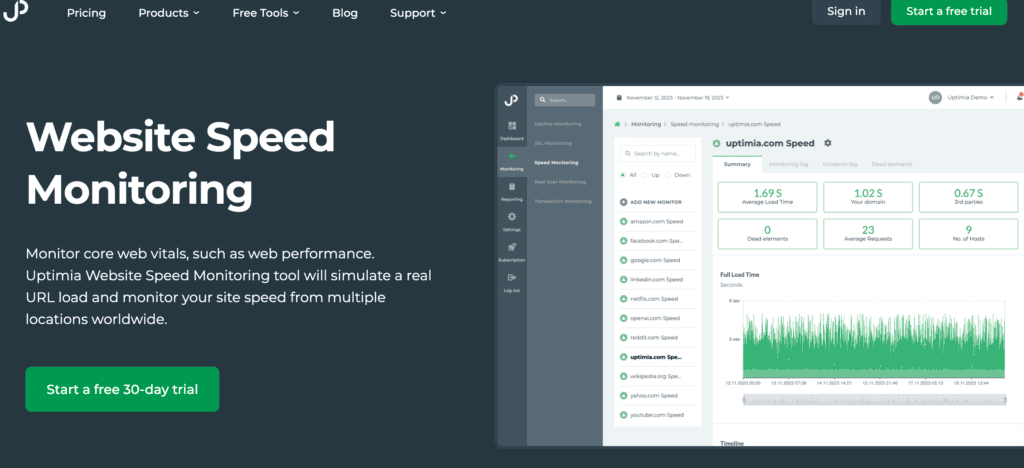
Uptimia is a power speed test tool that helps you test and monitor the site speed with its real-time alerts. It is designed to help you identify the pain points of the site’s performance and optimize and enhance the user experience.
With Upitimia, you get in-depth reports and metrics based on various factors that help you monitor your site speed efficiently. Its advanced features enable you to gather significant site data, track trends, and determine constant issues to resolve them in a timely manner.
How To Test WordPress Website Speed?
Now that you have enough options to choose among the best speed test tools let us run down how to test your WordPress website speed in a few easy steps.
Select The Right Tool
Choosing the right testing tool is the first crucial step in your quest for a faster WordPress website. Several powerful tools are available, each offering unique insights into your site’s performance. Consider using the above-listed tools and choosing the right fit as per your website performance requirements.
Check out: 6 Best WordPress Speed Optimization Services
Input Your WordPress Website URL
Navigate to the chosen speed testing tool’s website and input your WordPress website URL into the designated field. This initiates a comprehensive analysis of your site’s speed metrics, setting the stage for insightful revelations.
Read here: 15+ Actionable Ways To Speed Up WordPress Admin
Analyze Detailed Results
As the tool processes your website, get into the detailed results. Focus on crucial metrics such as load times, page size, and any specific recommendations the tool offers for performance enhancement. Understanding these metrics is key to making informed decisions about optimizing your site for speed.
Implement Actionable Items
Take proactive steps based on the insights gained from the testing tool. This might involve optimizing images, leveraging browser caching, addressing render-blocking resources, etc. Executing these changes transforms insights into tangible results, enhancing your site’s overall speed.
Regular Testing
Optimization is an ongoing process. Remember to regularly test your WordPress website speed to monitor improvements and identify any emerging issues. Consistent testing ensures that your website remains finely tuned for optimal performance over time.
Consider Hosting
Recognize that the hosting service is foundational to speed optimization. Opt for a reliable and swift WordPress hosting provider, as it significantly influences server responses and your website’s speed.
Know: Reasons To Avoid Cheap Hosting For WordPress Websites
Conclusion
When it comes to WordPress performance and site speed, it is crucial to monitor various aspects and metrics altogether. With the above-listed top tools for speed testing, you can analyze your WordPress performance and ensure optimal performance.
You can also opt for professional WordPress website optimization and test your website speed for quick and effective results.
Either way, always keep a check on your website speed to offer and maintain a user-friendly experience for your visitors.
FAQS
Why is it important to regularly test the performance and speed of a WordPress site?
Optimizing performance and speed is crucial for user experience and SEO. Users expect fast-loading websites, and search engines prioritize speed in their rankings. Regular testing helps identify and address issues, ensuring your WordPress site remains efficient and competitive.
How do tools like Pingdom and GTmetrix contribute to WordPress performance testing?
Pingdom and GTmetrix are powerful tools that analyze performance metrics, including load times and page sizes. They provide actionable insights, helping you identify blockages and optimize your website for faster loading.
Can Google PageSpeed Insights enhance both speed and search engine visibility?
Absolutely. Google PageSpeed Insights evaluates your website’s speed and provides recommendations aligned with SEO best practices. As PageSpeed Insights suggested, improving speed impacts your search engine rankings, making it a dual-purpose tool for optimizing performance and boosting visibility.
What role does a Content Delivery Network (CDN) play in WordPress speed testing, and how can it be optimized?
A CDN serves static content from servers closest to users, reducing latency and improving load times. To optimize CDN impact, strategically choose server locations based on your target audience.
How can minimizing HTTP requests and using tools like WP Rocket contribute to a faster WordPress website?
HTTP requests play a crucial role in page load speed. Minimizing requests by combining CSS and JS files, using inline JavaScript for smaller scripts, and employing tools like WP Rocket, which combines caching with optimization features, can significantly reduce load times.








